Supporting Student Projects Focused on Sustainability
The Albert, Norma and Howard Geller ’77 Endowed Research Awards support student-initiated research projects that advance our understanding of natural resource and environmental sustainability and develop practical improvements that can move society toward more sustainable outcomes.
Clark University undergraduate and graduate students are eligible, and are reviewed in separate competitions.
Given the intent of the Geller Awards, proposals are evaluated on the following criteria:
- Relevance to practical approaches of advancing sustainability
- Originality and innovation
- Clarity and feasibility of research plan
- Ways in which the project will contribute to linking knowledge to action
- Potential for the award to enable a project that may not be possible without it
- Evidence of meaningful interactions with a faculty mentor for the project and/or linkages to ongoing research (but not at the expense of originality and independence)
- Cost-effectiveness (i.e., whether the budget is reasonable)
- A scope of work commensurate with the academic standing of the student (i.e., we expect that applications from graduate students will reflect a greater degree of academic experience and professionalism, compared to applications from undergraduate students).
An interdepartmental faculty committee that shares Howard Geller’s interests in student research and activism for sustainability will select successful proposals. Subject to the number and quality of applications received, it is the intention of the committee to award one-half of both regular and small awards to undergraduate projects. We anticipate making approximately 3-4 regular awards in amounts ranging from $1,001 to $2,500, and several smaller grants, up to $1,000, each year. Requests for more than $2,500 will not be considered.
2025 Award Competition
The 2025 award competition is now closed. Click here for more details.

 Dung beetles play an integral role in maintaining healthy ecosystems. They provide a variety of important ecosystem services including degrading dung, aerating and restoring nutrients to the soil, supporting plant growth, reducing pathogens that harm livestock, and increasing seed dispersal. These services contribute an estimated $5.9 billion per year for farmers in the United States, so understanding the conditions that promote healthy dung beetle communities is ecologically and economically important. While most research has focused on dung beetles’ contribution in agricultural settings, they are also essential for the functioning of forest ecosystems. Human disturbance in urban forests may impact dung beetle populations. The goal of this project is to characterize the diversity, abundance, and distribution of dung beetles along gradients of disturbance and urbanization in the city of Worcester, and quantify how these factors influence the ecosystem services that they provide. This research will provide insight into how to protect dung beetle communities and broaden public awareness of dung beetles in central Massachusetts.
Dung beetles play an integral role in maintaining healthy ecosystems. They provide a variety of important ecosystem services including degrading dung, aerating and restoring nutrients to the soil, supporting plant growth, reducing pathogens that harm livestock, and increasing seed dispersal. These services contribute an estimated $5.9 billion per year for farmers in the United States, so understanding the conditions that promote healthy dung beetle communities is ecologically and economically important. While most research has focused on dung beetles’ contribution in agricultural settings, they are also essential for the functioning of forest ecosystems. Human disturbance in urban forests may impact dung beetle populations. The goal of this project is to characterize the diversity, abundance, and distribution of dung beetles along gradients of disturbance and urbanization in the city of Worcester, and quantify how these factors influence the ecosystem services that they provide. This research will provide insight into how to protect dung beetle communities and broaden public awareness of dung beetles in central Massachusetts.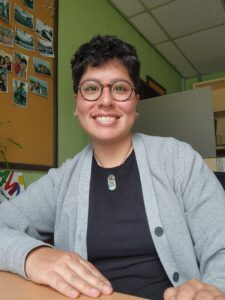 While Indigenous Territories of Amazonia are increasingly recognized for their contributions to forest conservation, recent studies have raised questions about their capacity to support Indigenous Peoples’ livelihoods and well-being. Among these challenges, land scarcity—defined as a decline in available or accessible land suitable for agricultural conversion—has emerged as a critical issue affecting Indigenous communities. Using semi-structured interviews with key stakeholders, this study aims to explore how two distinct enclosure processes contribute to land scarcity: (1) the allocation of unsuitable land endowments to Indigenous communities, and (2) the State’s implementation of strict forest conservation arrangements. Moving beyond traditional Malthusian interpretations that attribute land scarcity primarily to demographic pressure, this research aims to provide a more comprehensive understanding of how territorial constraints play a significant part in reducing the availability and access to land within Indigenous communities. The Ucayali basin in Peru serves as a case study region.
While Indigenous Territories of Amazonia are increasingly recognized for their contributions to forest conservation, recent studies have raised questions about their capacity to support Indigenous Peoples’ livelihoods and well-being. Among these challenges, land scarcity—defined as a decline in available or accessible land suitable for agricultural conversion—has emerged as a critical issue affecting Indigenous communities. Using semi-structured interviews with key stakeholders, this study aims to explore how two distinct enclosure processes contribute to land scarcity: (1) the allocation of unsuitable land endowments to Indigenous communities, and (2) the State’s implementation of strict forest conservation arrangements. Moving beyond traditional Malthusian interpretations that attribute land scarcity primarily to demographic pressure, this research aims to provide a more comprehensive understanding of how territorial constraints play a significant part in reducing the availability and access to land within Indigenous communities. The Ucayali basin in Peru serves as a case study region.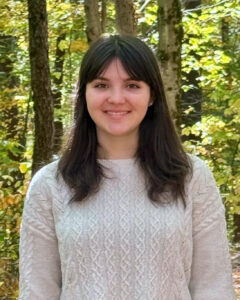 Climate change and associated sea-level rise is significantly altering coastal ecosystems and increasing the salinization of surrounding land. Many crops have a narrow tolerance for sodium chloride (salt) intake, thus climate-induced salinization has the potential to impact global food security. Some plants, particularly legumes, form symbiotic relationships with rhizobia (soil-dwelling, plant-growth-promoting bacteria) which enhance plant wellness and may help to mitigate the adverse effects of high salinity environments. This research will investigate whether Burr clover (Medicago polymorpha) plants inoculated with rhizobia are less impacted by salt. In addition, because Burr clover grows in both coastal and non-coastal environments, this research will compare test whether native plants that evolved in the coastal environment are less susceptible to salt-induces stress than invasive plants found in non-coastal environments. An increased understanding of the interconnected effects of geographic location, salinity concentrations in the microbiome, and rhizobial inoculation could assist farmers in adapting to environments exacerbated by climate change.
Climate change and associated sea-level rise is significantly altering coastal ecosystems and increasing the salinization of surrounding land. Many crops have a narrow tolerance for sodium chloride (salt) intake, thus climate-induced salinization has the potential to impact global food security. Some plants, particularly legumes, form symbiotic relationships with rhizobia (soil-dwelling, plant-growth-promoting bacteria) which enhance plant wellness and may help to mitigate the adverse effects of high salinity environments. This research will investigate whether Burr clover (Medicago polymorpha) plants inoculated with rhizobia are less impacted by salt. In addition, because Burr clover grows in both coastal and non-coastal environments, this research will compare test whether native plants that evolved in the coastal environment are less susceptible to salt-induces stress than invasive plants found in non-coastal environments. An increased understanding of the interconnected effects of geographic location, salinity concentrations in the microbiome, and rhizobial inoculation could assist farmers in adapting to environments exacerbated by climate change. Dengue, a mosquito-borne disease, is recognized as a significant public health issue in Argentina. Researchers have found that climate change, urbanization, and globalization (trade and travel) are the main factors causing the rapid spread of dengue. While some dengue vaccines are available, they are not effective in preventing all cases of dengue and are often too costly in low-to-middle-income countries. Therefore, vector control, reducing the possible areas for mosquito to breed, remains the essential method for preventing dengue. This study will utilize remote sensing technology to create mosquito oviposition risk maps in San Pedro de Jujuy, a city in the northeast of Argentina. On-site fieldwork will provide critical validation data. The project aims to produce more precise maps of dengue vector oviposition locations at various time scales, enabling the implementation of more effective, targeted, and sustainable vector control measures in this region. This project will strengthen collaboration with the Universidad Nacional de Jujuy and can serve as a pivotal study for dengue epidemic research, with the potential to expand to other similar cities in Latin America.
Dengue, a mosquito-borne disease, is recognized as a significant public health issue in Argentina. Researchers have found that climate change, urbanization, and globalization (trade and travel) are the main factors causing the rapid spread of dengue. While some dengue vaccines are available, they are not effective in preventing all cases of dengue and are often too costly in low-to-middle-income countries. Therefore, vector control, reducing the possible areas for mosquito to breed, remains the essential method for preventing dengue. This study will utilize remote sensing technology to create mosquito oviposition risk maps in San Pedro de Jujuy, a city in the northeast of Argentina. On-site fieldwork will provide critical validation data. The project aims to produce more precise maps of dengue vector oviposition locations at various time scales, enabling the implementation of more effective, targeted, and sustainable vector control measures in this region. This project will strengthen collaboration with the Universidad Nacional de Jujuy and can serve as a pivotal study for dengue epidemic research, with the potential to expand to other similar cities in Latin America. According to the International Union for Conservation of Nature, invasive species account for much of global biodiversity loss. However, not all invasive species are created equally. Myrmica rubra is an understudied invasive species in New England and parts of Canada that alters the insect community in dramatic ways, especially by decreasing the abundance and diversity of endemic ant species. Because most invasive species are prone to rapid and uncontrolled spread, often aided by the dynamic environments caused by climate change, it is important to monitor any expansions that may occur to prevent or limit the devastation they may cause. Currently our understanding of the M. rubra range is woefully outdated. The northern edges of the known range have yet to be investigated, and are likely moving northward due to climate change, hindering our understanding of the true extent of this invasive species. This study aims to: (1) determine the current outer range of Myrmica rubra, and (2) determine how this ant is changing local ant biodiversity. Better knowledge of this species range and ecosystem effects will help determine how important it is to control their spread.
According to the International Union for Conservation of Nature, invasive species account for much of global biodiversity loss. However, not all invasive species are created equally. Myrmica rubra is an understudied invasive species in New England and parts of Canada that alters the insect community in dramatic ways, especially by decreasing the abundance and diversity of endemic ant species. Because most invasive species are prone to rapid and uncontrolled spread, often aided by the dynamic environments caused by climate change, it is important to monitor any expansions that may occur to prevent or limit the devastation they may cause. Currently our understanding of the M. rubra range is woefully outdated. The northern edges of the known range have yet to be investigated, and are likely moving northward due to climate change, hindering our understanding of the true extent of this invasive species. This study aims to: (1) determine the current outer range of Myrmica rubra, and (2) determine how this ant is changing local ant biodiversity. Better knowledge of this species range and ecosystem effects will help determine how important it is to control their spread.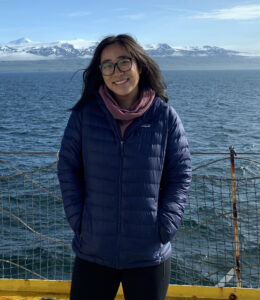 Seasonal sea ice cover is extremely important for Arctic Ocean ecosystems, determining the underlying water column structure, including the amount of available light and nutrients that are critical for driving the ocean’s primary production. As primary producers, phytoplankton serve as the base of the food web. Phytoplankton are extremely important in the Bering and Chukchi Seas where there are relatively short food chains, acting as major food sources for regional fauna. Furthermore, with changing environmental conditions, harmful algal blooms are becoming an emerging threat to all levels of the food chain. Even small changes in phytoplankton community structure can have cascading effects for upper trophic levels, including humans. This research portion of this project entails the processing and analysis of a set of phytoplankton samples from the August 2024 R/V Sikuliaq cruise using an Imaging Flow Cytobot (IFCB) at Oregon State University. Furthermore, this project will allow the applicant to gain relevant professional experience in training junior colleagues.
Seasonal sea ice cover is extremely important for Arctic Ocean ecosystems, determining the underlying water column structure, including the amount of available light and nutrients that are critical for driving the ocean’s primary production. As primary producers, phytoplankton serve as the base of the food web. Phytoplankton are extremely important in the Bering and Chukchi Seas where there are relatively short food chains, acting as major food sources for regional fauna. Furthermore, with changing environmental conditions, harmful algal blooms are becoming an emerging threat to all levels of the food chain. Even small changes in phytoplankton community structure can have cascading effects for upper trophic levels, including humans. This research portion of this project entails the processing and analysis of a set of phytoplankton samples from the August 2024 R/V Sikuliaq cruise using an Imaging Flow Cytobot (IFCB) at Oregon State University. Furthermore, this project will allow the applicant to gain relevant professional experience in training junior colleagues.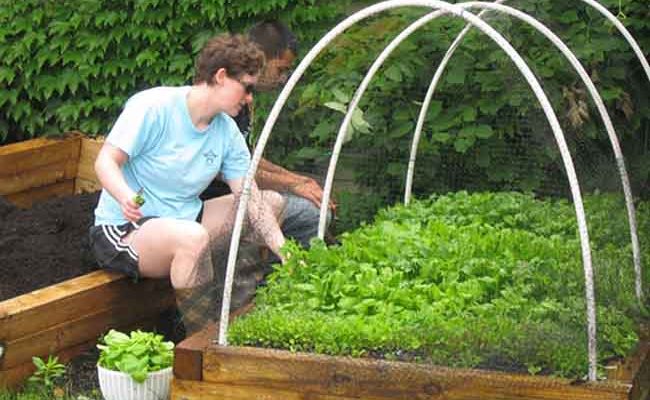
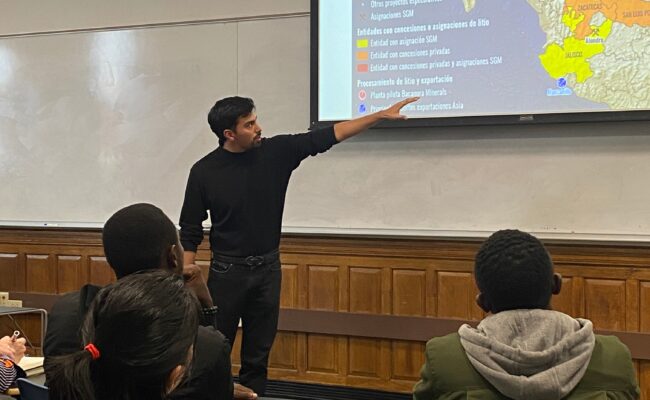
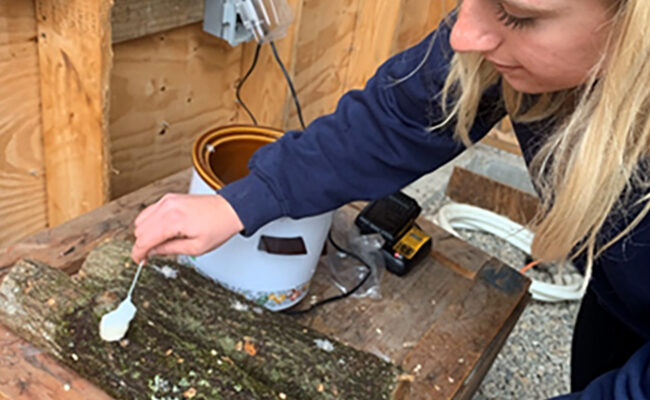
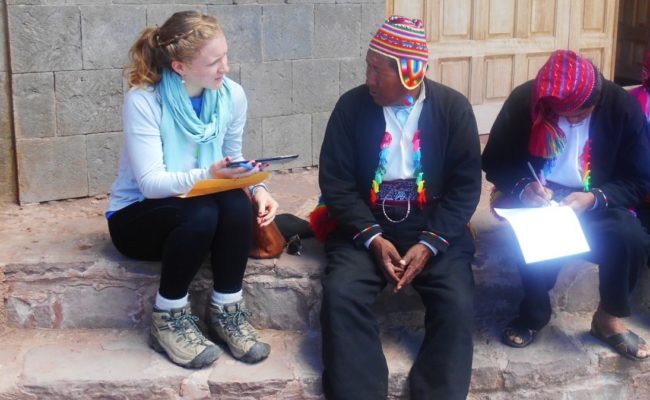
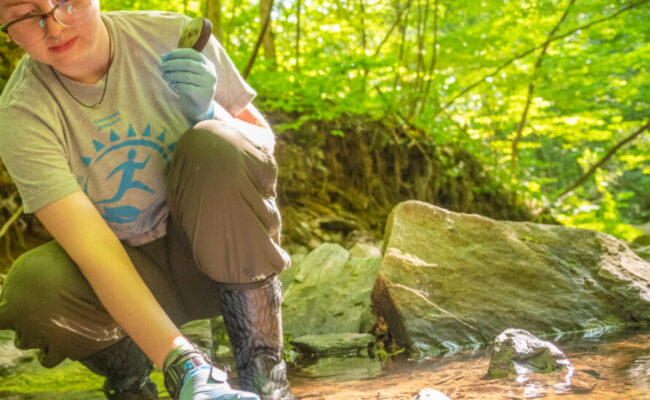
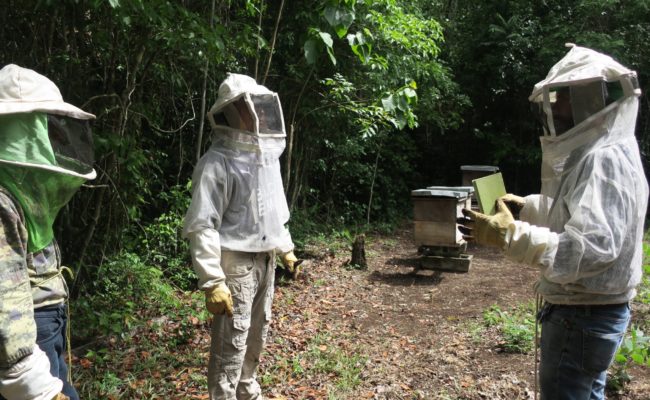
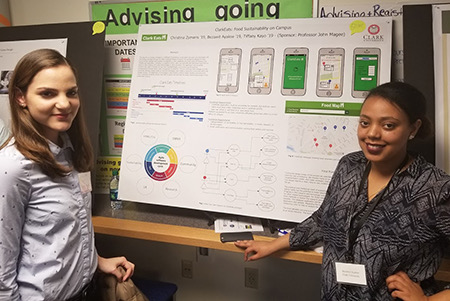
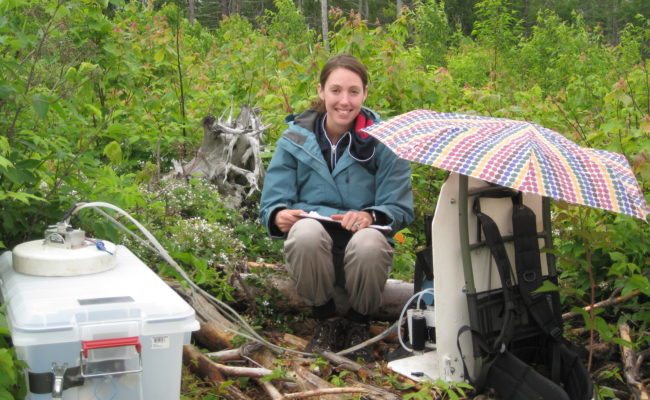
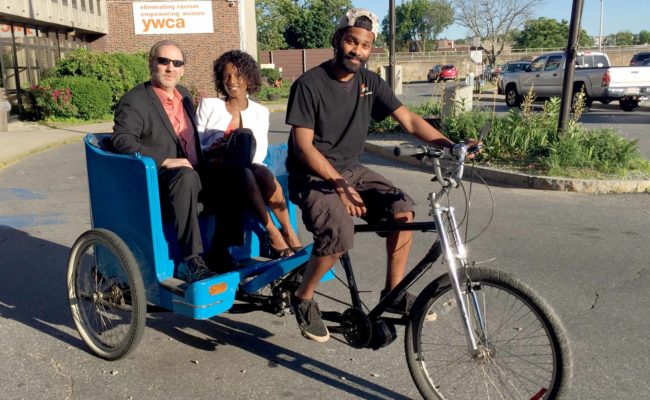
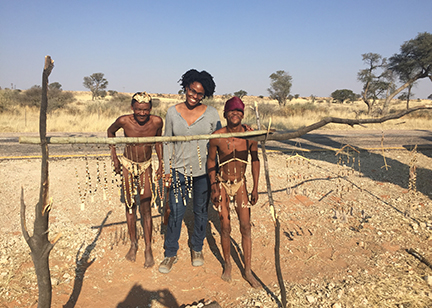
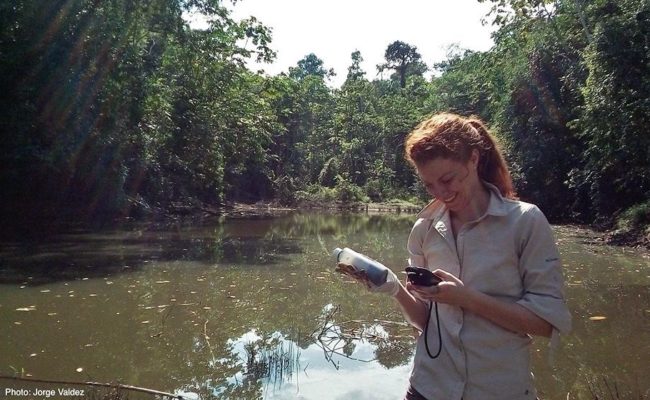
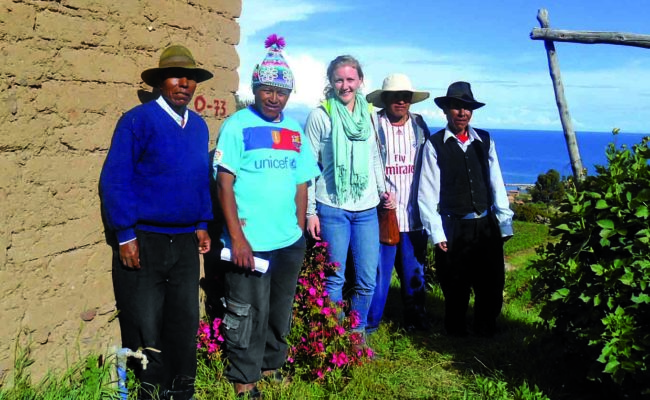
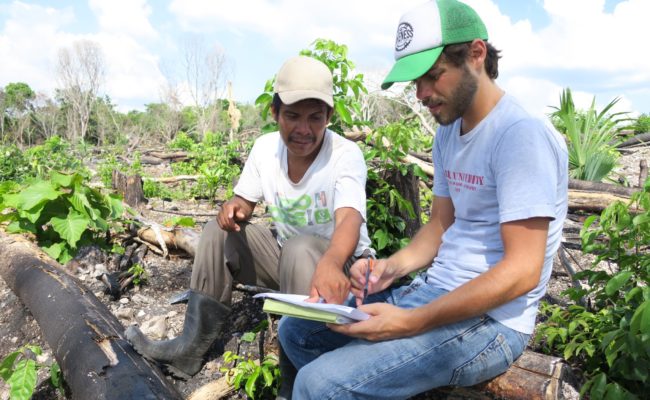
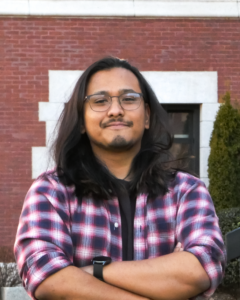 Project: Land Use Land Cover Modification as Disaster Response in Sindhupalchok District: Understanding Adaptive Pathways for Double Exposure in Nepalese Communities
Project: Land Use Land Cover Modification as Disaster Response in Sindhupalchok District: Understanding Adaptive Pathways for Double Exposure in Nepalese Communities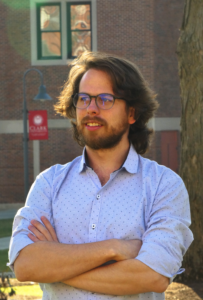 Project: Understanding REDD+ Beyond a Carbon-Centric Approach: Sustainable Agriculture and the Transformation of Indigenous, Peasant and Black Communities in Colombia
Project: Understanding REDD+ Beyond a Carbon-Centric Approach: Sustainable Agriculture and the Transformation of Indigenous, Peasant and Black Communities in Colombia Project: Flood Patterns and Extractivist Geographies on Indigenous Lands in Northern Wisconsin: An Integrated Approach
Project: Flood Patterns and Extractivist Geographies on Indigenous Lands in Northern Wisconsin: An Integrated Approach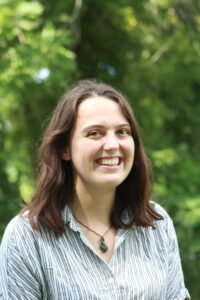 Project: Contesting Energy Transitions: Understanding Community Opposition to High-Voltage Transmission Lines in Northern New England
Project: Contesting Energy Transitions: Understanding Community Opposition to High-Voltage Transmission Lines in Northern New England Project: Urban Greening, Waste Reduction and Community Well-Being: A Case Study in the Upper West Ghana for Sustainable Urban Development
Project: Urban Greening, Waste Reduction and Community Well-Being: A Case Study in the Upper West Ghana for Sustainable Urban Development Project: Expert Knowledge and Discourses for Solar Photovoltaic Policy and Development: Ethnographic Fieldwork at Two Industry Conferences
Project: Expert Knowledge and Discourses for Solar Photovoltaic Policy and Development: Ethnographic Fieldwork at Two Industry Conferences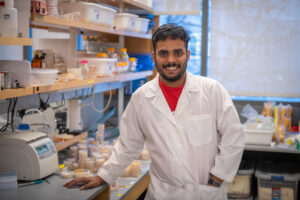
 Project: Unraveling the Impact of New Technology on Society: Challenges in Adopting EVs in Jeju Island, South Korea
Project: Unraveling the Impact of New Technology on Society: Challenges in Adopting EVs in Jeju Island, South Korea Project: Gender Equality: The Pathway to Food Systems Security, Economic Sustainability, and Ecological Preservation
Project: Gender Equality: The Pathway to Food Systems Security, Economic Sustainability, and Ecological Preservation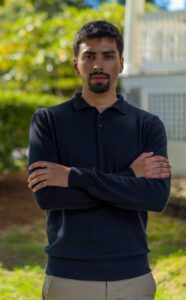 Project: Green Economy: Its Role in Lithium Extraction and Climate Change
Project: Green Economy: Its Role in Lithium Extraction and Climate Change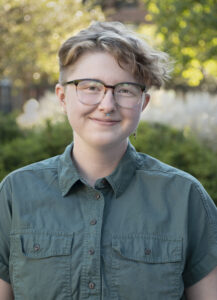 Project: Chromophoric Dissolved Organic Matter in the Blackstone River Watershed: Winter to Spring Transitions
Project: Chromophoric Dissolved Organic Matter in the Blackstone River Watershed: Winter to Spring Transitions Project: Present Absences: In the Making of the Sovereign Territoriality through Indigenous Peoples in Isolation and in Initial Contact in the Peruvian Amazon
Project: Present Absences: In the Making of the Sovereign Territoriality through Indigenous Peoples in Isolation and in Initial Contact in the Peruvian Amazon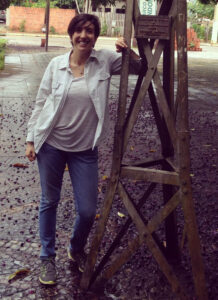 Project: Unbuilt Infrastructure Projects and The Use of Space in The Peruvian-Brazilian Border
Project: Unbuilt Infrastructure Projects and The Use of Space in The Peruvian-Brazilian Border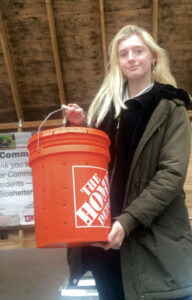 Project: Transforming Waste Systems: An Exploration into How Urban Fungi Farming Can Reduce Waste, Address Food Insecurity in Low-Income Communities, and Provide Practical Agricultural Education
Project: Transforming Waste Systems: An Exploration into How Urban Fungi Farming Can Reduce Waste, Address Food Insecurity in Low-Income Communities, and Provide Practical Agricultural Education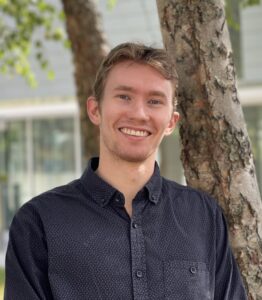 Project: The Globalization of Offshore Wind Energy: Green Skills, Workers Competition, and Transnational Organization
Project: The Globalization of Offshore Wind Energy: Green Skills, Workers Competition, and Transnational Organization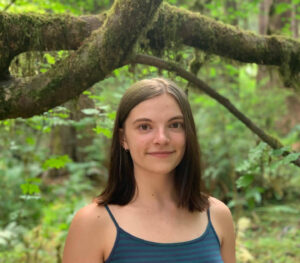 Project: Can Mushrooms Help Save the Bees?
Project: Can Mushrooms Help Save the Bees?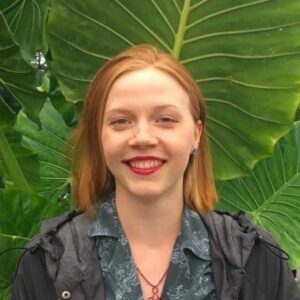 Project: A Mixed Methods Ethnography of Cooperative Projects in Uneven Urban Development in Worcester, MA
Project: A Mixed Methods Ethnography of Cooperative Projects in Uneven Urban Development in Worcester, MA Project: Evaluating urban tree management strategies and municipal structure to identify the effects of recent plantings on municipal stewardship
Project: Evaluating urban tree management strategies and municipal structure to identify the effects of recent plantings on municipal stewardship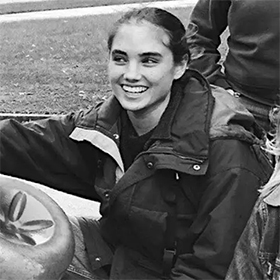
 Water is essential for life. Rapidly growing cities are struggling to meet the water demands of increasing urban populations and places under climate-change scenarios are likely to experience increasing stress on water resources. The World Bank has specifically identified and designated megacities as global risk centers. In one of the fastest growing metropolitan areas in the world, over 24M people in Mexico City and the surrounding region face: a) chronic scarcity of clean water due to more prolonged dry seasons; b) lack of wastewater sanitation in many neighborhoods; and c) deteriorating water distribution and wastewater drainage infrastructure. The region is facing high chronic water stress compared to other regions in Mexico and climate change amplifies these threats. This study will gather field data to parameterize a water system simulation model to answer the following research question: What is the climate-change vulnerability of the existing water supply and wastewater sanitation systems in the Mexico City Region, and how can their resilience be improved?
Water is essential for life. Rapidly growing cities are struggling to meet the water demands of increasing urban populations and places under climate-change scenarios are likely to experience increasing stress on water resources. The World Bank has specifically identified and designated megacities as global risk centers. In one of the fastest growing metropolitan areas in the world, over 24M people in Mexico City and the surrounding region face: a) chronic scarcity of clean water due to more prolonged dry seasons; b) lack of wastewater sanitation in many neighborhoods; and c) deteriorating water distribution and wastewater drainage infrastructure. The region is facing high chronic water stress compared to other regions in Mexico and climate change amplifies these threats. This study will gather field data to parameterize a water system simulation model to answer the following research question: What is the climate-change vulnerability of the existing water supply and wastewater sanitation systems in the Mexico City Region, and how can their resilience be improved? Urban gas leaks undermine progress towards climate change mitigation and cost American consumers billions of dollars each year. However, the sensors available to detect gas leaks are both too costly and too inaccessible to be used regularly by grassroots climate justice activists. Previous research suggests that a low-cost photopaper tool developed to help communities living alongside oil and gas wells document hydrogen sulfide pollution could also respond to the sulfur compounds present in commercial natural gas. This study will explore both the scientific and social dimensions of using the photopaper tool in this setting. We will first investigate whether the photopaper’s silver halide gel will corrode and discolor when exposed to natural gas in a laboratory glove box experiment as well as in field locations with varying amounts of traffic. Second, using a Community-Based Participatory Research Design, we will engage with a community partner—training citizen scientists—to gather secondary methane and air quality monitoring data in vulnerable urban neighborhoods. Finally, we will evaluate the social learning and advocacy benefits of participating in grassroots gas leak detection.
Urban gas leaks undermine progress towards climate change mitigation and cost American consumers billions of dollars each year. However, the sensors available to detect gas leaks are both too costly and too inaccessible to be used regularly by grassroots climate justice activists. Previous research suggests that a low-cost photopaper tool developed to help communities living alongside oil and gas wells document hydrogen sulfide pollution could also respond to the sulfur compounds present in commercial natural gas. This study will explore both the scientific and social dimensions of using the photopaper tool in this setting. We will first investigate whether the photopaper’s silver halide gel will corrode and discolor when exposed to natural gas in a laboratory glove box experiment as well as in field locations with varying amounts of traffic. Second, using a Community-Based Participatory Research Design, we will engage with a community partner—training citizen scientists—to gather secondary methane and air quality monitoring data in vulnerable urban neighborhoods. Finally, we will evaluate the social learning and advocacy benefits of participating in grassroots gas leak detection. 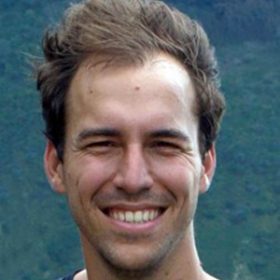 In the last decade, the Honduran state has sought to expand its extractive sectors in a context of heavy militarization with little accountability for the human rights of those who oppose it. This research will investigate experiments underway within the country to enact alternatives to its economic model centered on the large-scale extraction of resources for export (or extractivism’). The project is expected to generate insights into strategies for what scholar-activists have called ‘post-extractivism’, a future-oriented paradigm in which extraction is limited to that which is indispensable for ‘good living’ and which suggests a transition from individualistic consumerism toward more sustainable, communal societies. By joining a community-based learning process with a local environmentalist coalition, this project will use film to investigate and showcase the forms the post-extractivist agenda has taken in Honduras. Specifically, the project will produce three high-quality short documentary films, focused on experiments in places with different cultural identities, governance structures, and relationships to resource extraction projects, highlighting how and why these projects have emerged, grown, and distributed benefits.
In the last decade, the Honduran state has sought to expand its extractive sectors in a context of heavy militarization with little accountability for the human rights of those who oppose it. This research will investigate experiments underway within the country to enact alternatives to its economic model centered on the large-scale extraction of resources for export (or extractivism’). The project is expected to generate insights into strategies for what scholar-activists have called ‘post-extractivism’, a future-oriented paradigm in which extraction is limited to that which is indispensable for ‘good living’ and which suggests a transition from individualistic consumerism toward more sustainable, communal societies. By joining a community-based learning process with a local environmentalist coalition, this project will use film to investigate and showcase the forms the post-extractivist agenda has taken in Honduras. Specifically, the project will produce three high-quality short documentary films, focused on experiments in places with different cultural identities, governance structures, and relationships to resource extraction projects, highlighting how and why these projects have emerged, grown, and distributed benefits. Across the world there have been increases in ecological disturbances (e.g. wildfires, avalanches, and mudslides) at wildland-urban interfaces (DWUI), often posing risks to human safety. Current models do not adequately forecast future DWUI in the context of changing climate conditions. Increasing temperatures will continue to lead to earlier-onset spring, longer dry seasons, and more severe droughts in the Western United States and Europe. Resulting moisture deficits amplified by climate change result in less resilient forests as exemplified by lower seedling densities and, in some cases, regeneration failure. Research is required on the degree to which climate change is affecting post-disturbance regeneration and how change in regeneration may in turn influence subsequent disturbance regimes. The Swiss Alps provide a unique location for the study of these trends as the region experiences climate change at twice the rate of the continental U.S. and can act as an early indicator biome for future disturbances in other temperate mountain forested ecosystems. Using rich historical datasets documenting DWUI and forest management in the Swiss Alps, this project will develop predictive models to understand how climate change will impact DWUI in other parts of Europe and in the Western U.S.
Across the world there have been increases in ecological disturbances (e.g. wildfires, avalanches, and mudslides) at wildland-urban interfaces (DWUI), often posing risks to human safety. Current models do not adequately forecast future DWUI in the context of changing climate conditions. Increasing temperatures will continue to lead to earlier-onset spring, longer dry seasons, and more severe droughts in the Western United States and Europe. Resulting moisture deficits amplified by climate change result in less resilient forests as exemplified by lower seedling densities and, in some cases, regeneration failure. Research is required on the degree to which climate change is affecting post-disturbance regeneration and how change in regeneration may in turn influence subsequent disturbance regimes. The Swiss Alps provide a unique location for the study of these trends as the region experiences climate change at twice the rate of the continental U.S. and can act as an early indicator biome for future disturbances in other temperate mountain forested ecosystems. Using rich historical datasets documenting DWUI and forest management in the Swiss Alps, this project will develop predictive models to understand how climate change will impact DWUI in other parts of Europe and in the Western U.S. As cities are increasingly faced with new sustainability challenges, they are also tasked with the need to develop new modes of urban governance to achieve their desired futures. Accordingly, urban actors are increasingly developing and testing new governance practices through “urban governance experiments.” These experiments are neighborhood-based trials of new governance practices that are intended to be “scaled up” to larger urban areas. However, a gap in knowledge exists on how urban governance experiments develop in relation to the places in which they are sited, and through what means and for what reasons they are then able to scale to new areas. This research seeks to fill this gap in knowledge through investigating a specific urban governance experiment–EcoDistricts planning–in the Pittsburgh metro region. EcoDistricts planning is a mode of urban governance in which several small-scale “ecodistricts” are formed to develop sustainability best practices that can then be scaled up to the city-wide scale. Specifically, this project will investigate how EcoDistricts planning is developing in the Millvale EcoDistrict, how it is scaling up to a new regional-scale TriBoro EcoDistrict, and what factors have enabled and challenged these processes.
As cities are increasingly faced with new sustainability challenges, they are also tasked with the need to develop new modes of urban governance to achieve their desired futures. Accordingly, urban actors are increasingly developing and testing new governance practices through “urban governance experiments.” These experiments are neighborhood-based trials of new governance practices that are intended to be “scaled up” to larger urban areas. However, a gap in knowledge exists on how urban governance experiments develop in relation to the places in which they are sited, and through what means and for what reasons they are then able to scale to new areas. This research seeks to fill this gap in knowledge through investigating a specific urban governance experiment–EcoDistricts planning–in the Pittsburgh metro region. EcoDistricts planning is a mode of urban governance in which several small-scale “ecodistricts” are formed to develop sustainability best practices that can then be scaled up to the city-wide scale. Specifically, this project will investigate how EcoDistricts planning is developing in the Millvale EcoDistrict, how it is scaling up to a new regional-scale TriBoro EcoDistrict, and what factors have enabled and challenged these processes. Over the past decade, Senegal has actively promoted the development of its renewable energy sector to reduce reliance on fossil fuels and alleviate energy shortages. Following the adoption of the Renewable Energy Orientation law in 2010, the government has developed a policy and institutional framework aimed at attracting private investment for the development of large-scale renewable energy facilities with a key focus on solar energy. While the commitment by the government to developing renewable energy is admirable, it is important that such developments not perpetuate existing inequalities in the country. Large-scale solar projects require a significant amount of space and hence are usually constructed in rural areas. However, such projects can result in local communities losing access to land and resources they depend on for their livelihoods. Thus far, research on renewable energy in Senegal has focused on the technical potential of developing renewable energy generation capacity, without examining, in-depth, how rural lands and relations are transformed in the process, what such transformations mean for resource access and control, or how local populations are affected by these types of projects. This research responds to this gap in knowledge by examining the drivers of large-scale solar power in Senegal and its implications for rural livelihoods.
Over the past decade, Senegal has actively promoted the development of its renewable energy sector to reduce reliance on fossil fuels and alleviate energy shortages. Following the adoption of the Renewable Energy Orientation law in 2010, the government has developed a policy and institutional framework aimed at attracting private investment for the development of large-scale renewable energy facilities with a key focus on solar energy. While the commitment by the government to developing renewable energy is admirable, it is important that such developments not perpetuate existing inequalities in the country. Large-scale solar projects require a significant amount of space and hence are usually constructed in rural areas. However, such projects can result in local communities losing access to land and resources they depend on for their livelihoods. Thus far, research on renewable energy in Senegal has focused on the technical potential of developing renewable energy generation capacity, without examining, in-depth, how rural lands and relations are transformed in the process, what such transformations mean for resource access and control, or how local populations are affected by these types of projects. This research responds to this gap in knowledge by examining the drivers of large-scale solar power in Senegal and its implications for rural livelihoods. Bark beetle outbreaks, linked to the recent enhanced temperature and prolonged drought, have caused an unprecedented level of tree mortality in conifer forest across the Western United States. Multiple synchronous bark beetle outbreaks impact sustaining ecosystem services such as carbon storage, biodiversity, and timber production. The efficacy of management practices are contingent upon an early detection of beetle attack, where infested trees containing the next generation of beetles can be removed before brood emergence. This project focuses on detecting and assessing recent bark beetle outbreaks in Northern Colorado. Through combining satellite data time series analysis and field-surveyed data, this research aims to develop a novel approach for systematic monitoring and assessment of gradual forest change such as beetle-related early-stage needle change. This project addresses a methodological goal pertinent to the utility of dense time-series of remotely sensed images for characterizing gradual forest change concerning beetle-induced forest degradation, which can potentially be applied to global forest pest epidemics happening elsewhere.
Bark beetle outbreaks, linked to the recent enhanced temperature and prolonged drought, have caused an unprecedented level of tree mortality in conifer forest across the Western United States. Multiple synchronous bark beetle outbreaks impact sustaining ecosystem services such as carbon storage, biodiversity, and timber production. The efficacy of management practices are contingent upon an early detection of beetle attack, where infested trees containing the next generation of beetles can be removed before brood emergence. This project focuses on detecting and assessing recent bark beetle outbreaks in Northern Colorado. Through combining satellite data time series analysis and field-surveyed data, this research aims to develop a novel approach for systematic monitoring and assessment of gradual forest change such as beetle-related early-stage needle change. This project addresses a methodological goal pertinent to the utility of dense time-series of remotely sensed images for characterizing gradual forest change concerning beetle-induced forest degradation, which can potentially be applied to global forest pest epidemics happening elsewhere.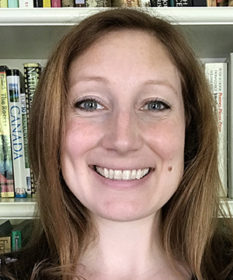
 China is rapidly emerging as one of the world’s green superpowers in a wide range of sectors including green transportation; in 2015, it became the world’s largest and fastest-growing electric vehicle (EV) market. More than half of the EVs sold in China are low-speed electric vehicles (LSEV), which are produced by entrepreneurial start-up firms. While existing research on sustainable transitions in China has predominantly focused on the role of the state and its public sectors, especially state-owned enterprises (SOEs), little attention has been paid to the bottom-up approach and the role of the private sector. The objective of this project is to shed light on green capitalism driven by bottom-up sustainable entrepreneurship against the background of the Chinese developmental state’s top-down approach to sustainability. Using a case study of the LSEV industry, this research will analyze: (1) strategies used by LSEV firms to achieve technological leapfrogging goals in niche markets, (2) the role of the state at the subnational level in the development of the LSEV industry, and (3) the relationships between the top-down and bottom-up approaches to sustainable development for the LSEV case. This research aims at offering a nuanced account of the governance framework of sustainable development at different scales of the Chinese developmental state.
China is rapidly emerging as one of the world’s green superpowers in a wide range of sectors including green transportation; in 2015, it became the world’s largest and fastest-growing electric vehicle (EV) market. More than half of the EVs sold in China are low-speed electric vehicles (LSEV), which are produced by entrepreneurial start-up firms. While existing research on sustainable transitions in China has predominantly focused on the role of the state and its public sectors, especially state-owned enterprises (SOEs), little attention has been paid to the bottom-up approach and the role of the private sector. The objective of this project is to shed light on green capitalism driven by bottom-up sustainable entrepreneurship against the background of the Chinese developmental state’s top-down approach to sustainability. Using a case study of the LSEV industry, this research will analyze: (1) strategies used by LSEV firms to achieve technological leapfrogging goals in niche markets, (2) the role of the state at the subnational level in the development of the LSEV industry, and (3) the relationships between the top-down and bottom-up approaches to sustainable development for the LSEV case. This research aims at offering a nuanced account of the governance framework of sustainable development at different scales of the Chinese developmental state.